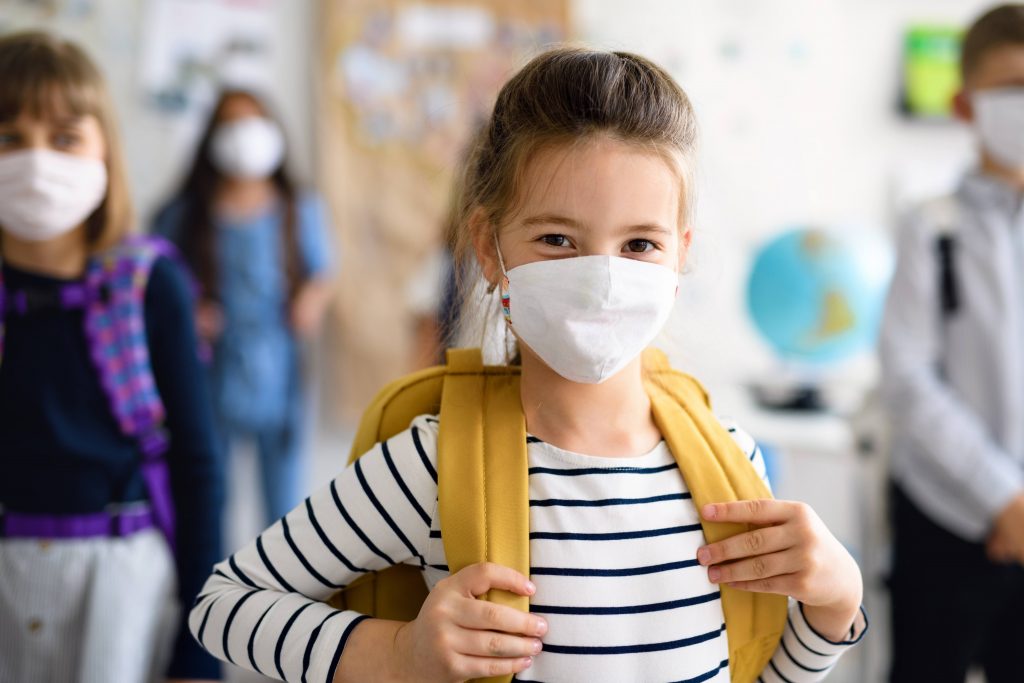-
COVID-19
Mayo Clinic Q and A: COVID-19 testing for children

DEAR MAYO CLINIC: I have two children under 10 who just returned to school in person. The school announced updated requirements that when children return to school from being sick, they will need to have a negative COVID-19 test. Since my daughters are not good patients, I'm concerned about how to prepare them if they need a COVID-19 test.
ANSWER: The ongoing COVID-19 pandemic has been a stressful time for many families. Each of your family members, including your children, likely have had many changes to daily routines in recent weeks or months. This can be troubling to children and disrupt the family dynamic. One part of the pandemic that could cause children to be upset is if they need a COVID-19 test.
The good news is that there are things that you can do as a parent or caregiver to ease potential fear and anxiety. When children are prepared to take a medical test, they are more cooperative and comfortable.
There are a few steps I'd recommend to prepare your children for a COVID-19 test.
First, define new terms. It's important that your children have a basic understanding of what COVID-19 is and why they need to be tested. Take time to explain COVID-19 in kid-friendly terms. Make sure you consider your children's personalities if they will become anxious hearing about being sick.
Here's how I describe it when talking with kids: "You may have heard adults talking about COVID-19. It's a virus, like a germ, and it is so tiny that we can't see it with our eyes. Some people who get this virus can have a fever or a cough, and may feel achy and tired, while some people can have this virus and not feel sick at all. The only way to know for sure if you have the virus in your body is to get a test. This helps your doctor and parents know the best way to take care of you."
You also should explain what your children will see when they get tested. For instance, share with your kids that there might be people who will be wearing more protective clothing and masks than before.
One way to explain it might be to say: "Health care team members will wear gloves on their hands, a mask over their mouth and a clear plastic shield to protect their eyes. They are wearing these things to protect you, me and themselves from spreading germs."
You also can encourage your children to watch the eyes of health care team members because when they smile, the shape of their eyes will change.
Lastly, don't forget to explain the test process. How you describe the testing process depends on the age of your children. For young school-age children, like yours, I recommend that you describe it as touching the inside of the back of their nose with a long, skinny cotton swab.
Here's how I explain it when talking with patients: “During the test, the health care provider will put a long, skinny cotton swab up into your nose for a few seconds to collect a sample. While this happens, it may tickle or feel uncomfortable, and you might feel like you want to push the cotton swab away. But you have a very important job. You need to stay as still as possible, like a statue, during the test.”
Depending on your children's ability to sit still, it may help to practice in advance before you need to have a test so you can positively reinforce good behavior. Encourage your children to lean back, hold your hand and count slowly to five while remaining still. You also will want to remind them to breathe slowly. Lastly, it is important that your children feel safe during any health visit, so remind them that you will be with them during the test. In addition, let them bring a comfort item, such as a favorite stuffed animal or blanket.
While no parent wants their children to be sick, with a little preparation and practice, hopefully your children will feel more comfortable should they need to undergo a COVID-19 test. In addition to talking with your children, you can share this Mayo Clinic video to help them feel more comfortable and confident for their COVID-19 test. — Dr. Jennifer Brumm, Pediatric and Adolescent Medicine, Mayo Clinic Health System ― Franciscan Healthcare, La Crosse, Wisconsin
Information in this post was accurate at the time of its posting. Due to the fluid nature of the COVID-19 pandemic, scientific understanding, along with guidelines and recommendations, may have changed since the original publication date.
For more information and all your COVID-19 coverage, go to the Mayo Clinic News Network and mayoclinic.org.







